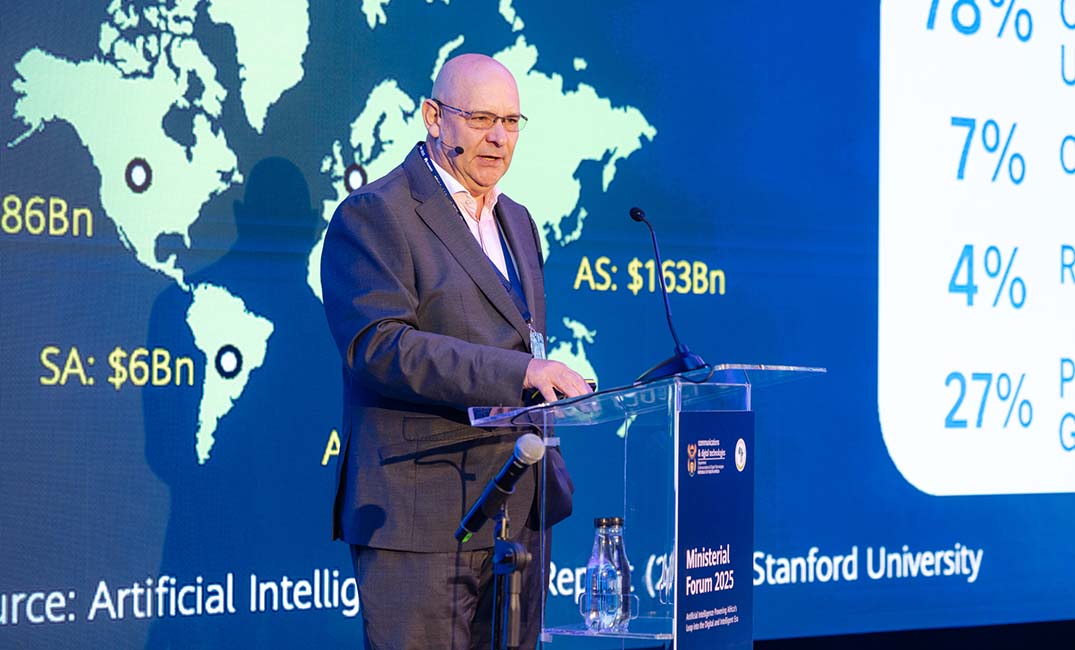Kathy Gibson reports – Artificial intelligence (AI) is not a luxury for Africa, but a necessity.
Andre Wills, MD of Africa Analysis Team, tells delegates to the Ministerial Forum taking place on the sidelines of Africa Tech Festival in Cape Town, that Africa has a choice when it comes to AI.
“We can choose to be subservient and follow what AI dictates to us. Or we can be co-leaders in the development of AI for Africa.”
He points out that most organisations (78%) are using AI in one way or another today. They are experiencing a 7% cost saving and a 4% revenue improvement. But the big benefit, Wills says, is a 27% productivity improvement. “This means that more than one in four employees experienced positive impacts from AI.”
AI could add as much as $15-trillion to the global GDP by 2030, he adds.
AI will have a massive impact on the workforce, with 40% of global employment set to be affected by 2030. Wills extrapolates this to 2035, when it will most likely impact 80% of workers.
“This shows the pervasiveness of AI and its impact.”
Like all new technologies, AI will have a positive economic effect. Wills explains that connectivity, the primary economic enabler of the digital decade, added 1,2% to GDP growth. The collective view is that AI will contribute between 1% and 1,5% annually.
The potential impact for Africa is huge. With a total GDP of $40-million, AI could contribute between $1-trillion and $2-trillion.
Wills is quick to point out that AI is already being used extensively in Africa, particularly in agriculture, healthcare, finance, and government services.
But there are massive challenges: 57% of the continent has no reliable power access, and 27% have no broadband access.
The continent also faces data and ecosystem fragmentation, as well as regulatory and institutional constraints.
Most significant is Africa’s persistent digital divide, Wills points out. There is still a 40% urban-rural divide, a 20% gender gap and a continued high income barrier.
AI could help to start addressing some of these divides, but it could also make them deeper.
Most importantly, there can be no AI without suitable infrastructure, Wills says.
Africa has less than 1% of global cloud capacity, and latency remains an issue. The building blocks being laid down now are going to be critical to being able to catch up on capacity, he adds.
None of this can happen without talent development. “The one critical asset in Africa is our youth,” Wills says. “But we have limited local capacity for AI model design, research, and deployment.”
Africa contributes fewer than 1% of global AI professionals – and there are just four African universities in the global top 500 for computer science.
To this end, education reforms are urgent.
Wills ends with five recommendations for Africa:
- Address the infrastructure issues, building a resilient digital backbone that enables sovereign AI development.
- Build human capital with a skilled workforce to make Africa a global AI contributor rather than simply a user.
- Govern with trust because trustworthy, human-centric AI adoption will attract investment.
- Empower innovators to create a vibrant African AI ecosystem rooted in home-grown solutions.
- Integrate regionally to develop an integrated African AI market of scale and shared capacity.

